International
Faye sworn in as Senegal president, promises reforms, to tackle corruption
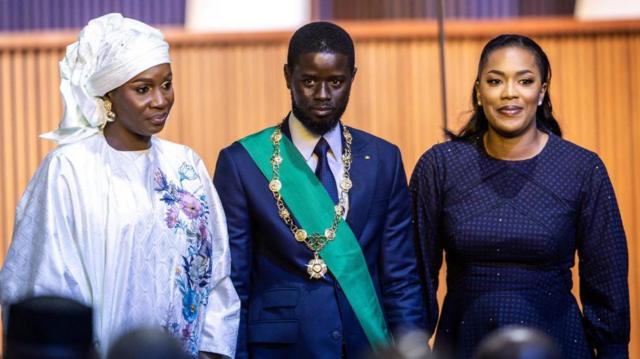
Faye sworn in as Senegal president, promises reforms, to tackle corruption
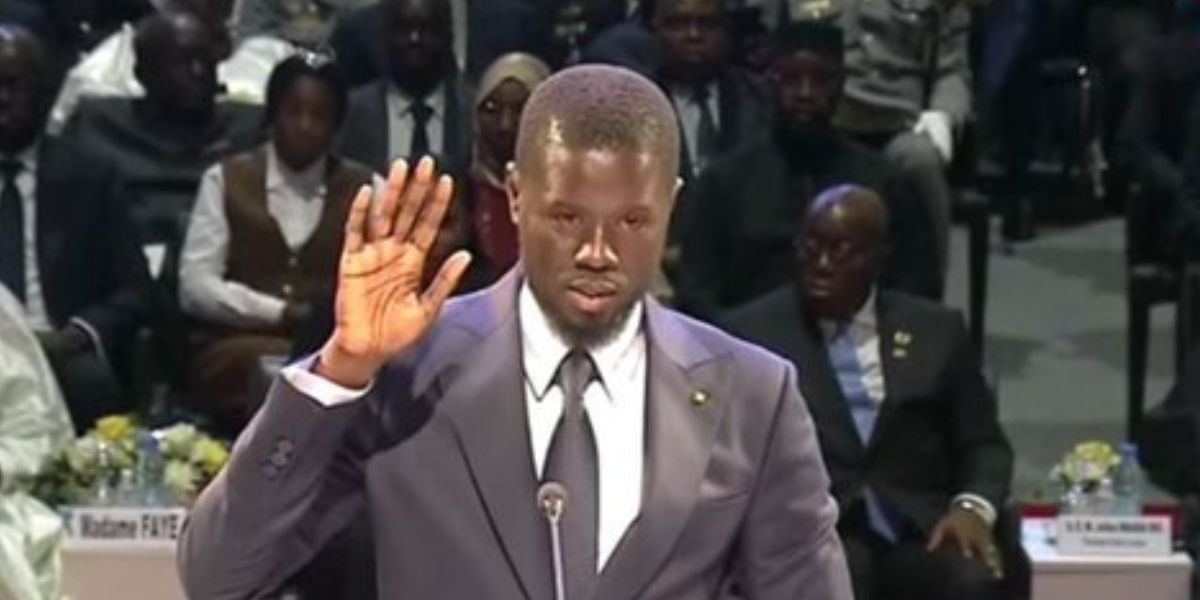
Senegal’s once jailed opposition candidate Bassirou Diomaye Faye was sworn in on Tuesday as the West African nation’s fifth and youngest president ever, promising to restore stability and bring economic progress.
President Bola Tinubu along with many other African leaders witnessed the inauguration held in Dakar.
Faye, a 44-year-old former tax inspector, defeated Amadou Ba, the candidate of outgoing President Macky Sall’s ruling coalition, by a landslide in the first round of voting, with high hopes for change in the country of about 18 million people.
“The results of the election showed a profound desire for change,” Faye said after taking the oath of office at a ceremony he attended with his two wives.
Ghana’s President Nana Akufo-Addo and African Union Commission Chair Moussa Faki Mahamat also attended the ceremony.
The military juntas of Burkina Faso, Mali and Niger also sent representatives.
The smooth transition was a welcome boost after three years of unprecedented political turmoil in Senegal that had raised concern about democratic backsliding in the coup-prone region of West Africa, where juntas have seized power and cut ties with traditional Western allies in favour of Russia.
The new president has vowed to tackle corruption and introduce a series of economic reforms to prioritise national interests, including the re-negotiation of oil, gas and mineral contracts with foreign operators.
“Senegal will be a country of hope, at peace, with an independent justice system and a stronger democracy,” Faye said.
“I will work towards preserving peace and national cohesion and make sure we preserve our most cherished resource, our national stability.”
Ousmane Sonko backed his right-hand man Faye from jail after his candidacy was rejected.
Faye was also in detention at the time on charges, including defamation, which he denies.
Expectations are high as Faye, relatively inexperienced in government affairs, becomes president of a young population frustrated with rising living costs and a lack of jobs in a country set to become an oil and gas producer this year.
International
‘Massive’ Russian attack causes Ukraine blackouts

‘Massive’ Russian attack causes Ukraine blackouts
A “massive” Russian missile and drone attack has targeted power infrastructure across Ukraine, the country’s President Volodymyr Zelensky has said.
At least 10 people were killed in the strikes, which hit the capital, Kyiv, as well as multiple targets in several regions including Donetsk, Lviv and Odesa.
Ukraine’s largest private energy company, DTEK, said its thermal energy plants had suffered “significant damage”, resulting in blackouts.
The country’s state-owned energy operator, Ukrenergo, says it will enforce “restriction measures” for the whole of Ukraine on Monday.
The co-ordinated assault overnight on Saturday was largest of its kind since early September, according to authorities and local media.
In total, around 120 missiles and 90 drones were launched, Zelensky said on Telegram.
“Peaceful cities, sleeping civilians” and “critical infrastructure” were targeted, Ukraine’s foreign minister Andrii Sybiha said.
The Russian defence ministry reported that it had hit all its targets, saying that its attack was on “essential energy infrastructure supporting the Ukrainian military-industrial complex”.
READ ALSO:
- Biden allows Ukraine to strike inside Russia with missiles
- Labour Party suspends senator over alleged misconduct, anti-party activities
- Gunmen abduct NDLEA officers in Delta
“Russian terrorists once again want to scare us with cold and lack of light,” was how President Zelensky put it.
Of course, anything that seeks to deny power to factories producing weaponry inevitably harms civilians too – indirectly, through the loss of electricity and frequently water, and directly, as missiles or fragments of missiles rain down from the sky.
The governor of the Odesa region, Oleh Kiper, said there had also been disruptions to heat and water supplies, although the latter was gradually being restored. Hospitals and other critical infrastructure were operating using generators.
Further east, the city of Mykolaiv was also hit. The region’s leader, Vitaliy Kim, told the BBC that the people were resilient there, despite being attacked regularly.
“People are in a good shape and want to defend themselves. We do not want to lose our homes,” he said.
In Kyiv, fragments from intercepted missiles and drones fell in several places, but there were no reports of injuries.
The attack was the eighth large-scale one targeting Ukraine’s energy facilities this year, DTEK said in a statement, adding that its plants had been attacked more than 190 times since the start of Russia’s full-scale invasion of Ukraine in February 2022.
Ukrainian officials fear the most recent strike could signal another concerted Russian attempt to deplete the power grid as winter arrives.
Having already endured two-and-a-half bitter winters since Russia’s full-scale invasion in February 2022, Ukrainians are bracing themselves for another.
“Here we go again” were the words of an official at one of Ukraine’s private energy companies, summing up the mood across the country on Sunday.
Through ingenuity and sheer determination, Ukraine has managed to survive each winter assault so far. There is every chance it will again, although its generation capacity is now less than a half of what it was in February 2022.
Poland, Ukraine’s neighbour to the west, scrambled fighter jets to patrol its own airspace as a security precaution.
“Due to a massive attack by Russia, which is carrying out strikes using cruise missiles, ballistic missiles and drones against sites located, among other places, in western Ukraine, operations by Polish and allied aircraft have begun,” Poland’s Operational Command said.
Hungary, which neighbours both Ukraine and Poland, was also on alert after drone attacks struck the westernmost Subcarpathian region – about 20km (12 miles) from the Hungarian border.
The country’s defence minister said the “situation is being monitored continuously”.
These latest attacks come as both Ukraine and Russia continue to try to anticipate how US President-elect Donald Trump will act once his administration takes power in January.
Trump has consistently said his priority is to end the war and what he describes as a drain on US resources in the form of military aid to Kyiv. He has not said how.
The US has been the greatest supplier of arms to Ukraine. Between the start of the war and the end of June 2024, it delivered or committed to send weapons and equipment worth $55.5bn (£41.5bn), according to the Kiel Institute for the World Economy, a German research organisation.
There are fears in Kyiv that it may come under pressure to negotiate an end to the war that may favour Russia’s advances – Moscow continues to control a large swathe of Ukrainian territory.
Zelensky has said he is certain the war with Russia will “end sooner” than it otherwise would have under the new Trump presidency.
Kremlin spokesman Dmitry Peskov recently told Russian state media of “positive” signals from the incoming US administration. But Russia has denied that a phone call took place in which Donald Trump reportedly warned the Russian president against escalating the war.
However, for all the talk of the possible changes coming when Donald Trump enters the White House, Sunday’s attacks seem to indicate that, for now at least, the war’s grim realities are not changing.
Meanwhile, the leader of Germany – another Ukrainian ally – has defended a phone call he had with Putin on Friday, something Kyiv criticised as an attempt at appeasement.
“It was important to tell him [Putin] that he should not count on the support of Germany, Europe and many others in the world for Ukraine waning, but that it is now also up to him to ensure that the war comes to an end,” Olaf Scholz said on Sunday.
He added that the Russian president had given no indication of a shift in his thinking on the war.
‘Massive’ Russian attack causes Ukraine blackouts
BBC
International
Biden allows Ukraine to strike inside Russia with missiles
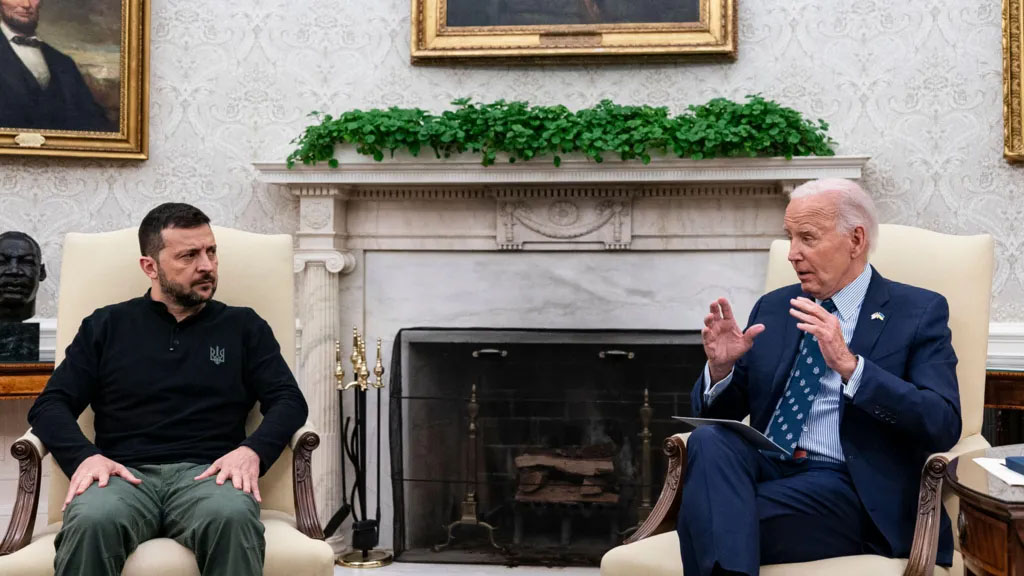
Biden allows Ukraine to strike inside Russia with missiles
US President Joe Biden has given the green light for Ukraine to use long-range missiles supplied by the US to strike Russia.
A US official has confirmed the move, a major change of US policy, to the BBC’s US partner CBS.
For months, Ukraine’s President Volodymyr Zelensky has been urging that the restrictions on the missiles, known as ATACMS, be lifted – allowing Kyiv to strike outside its own borders.
On Sunday he reacted to the reports, saying “such things are not announced, missiles speak for themselves”.
Russian President Vladimir Putin has previously warned Western nations against such a move, saying it would represent the Nato military alliance’s “direct participation” in the Ukraine war.
He was yet to comment on Sunday’s reports although other senior Kremlin politicians described it as a serious escalation.
Washington’s decision on ATACMS is couched in terms of being limited to the defence of Ukrainian forces inside Russia’s Kursk region, where Kyiv launched a surprise incursion in August.
In effect, the Biden administration is telling Ukraine that it will support its efforts to hold onto the small chunk of Russian territory it currently occupies, as a powerful bargaining chip for any possible negotiations in the future.
Serhiy Kuzan, chairman of the Kyiv-based Ukrainian Security and Cooperation Centre, told the BBC that Joe Biden’s decision was “very important” to the country.
READ ALSO:
- Labour Party suspends senator over alleged misconduct, anti-party activities
- Gunmen abduct NDLEA officers in Delta
- AGF recommends FBI model for EFCC, ICPC investigations
“It’s not something that will change the course of the war, but I think it will make our forces more equal.”
ATACMS can reach up to 300km (186 miles). Unnamed US officials have told the New York Times and the Washington Post that Biden’s approval of Ukraine’s use of the ATACMS came in response to Russia’s decision to allow North Korean soldiers to fight in Ukraine.
Mr Kuzan said Sunday’s decision had come ahead of what was an expected assault by Russian and Korean troops, designed to dislodge Ukrainian forces from Russia’s Kursk region. The offensive was expected within days.
Ukraine had earlier estimated there to be 11,000 North Korean soldiers in Kursk.
President Biden’s decision will also finally enable Britain and France to grant Ukraine permission to use long-range Storm Shadow missiles inside Russia.
Neither the UK nor France has yet responded to Biden’s decision.
Last month, Zelensky confirmed that Ukraine had used US-supplied long-range missiles for the first time to strike Russian targets in the country’s east.
For months, Ukraine has been battling to push back Russian troops who have been slowly advancing in the eastern Donetsk region towards the key city of Pokrovsk – a major supply hub for Ukrainian forces.
Moscow has also massively increased its number of drone strikes on Ukraine. More than 2,000 were launched in October, according to Ukraine’s general staff – a record number in the war.
Overnight on Saturday, Russia launched what is thought to be its biggest co-ordinated assault in months, killing at least 10 people. Around 120 missiles and 90 drones were launched, according to Zelensky.
Attacks continued on Sunday evening, with officials in Sumy region – near the Russian border – reporting another eight killed, including two children, after a missile hit a residential building.
Russian officials in the border region of Bryansk reported a Ukrainian drone attack on Sunday night but said its defences had shot down 26 drones.
Ukraine had for months argued that its allies had not provided the country with enough support to allow it to effectively defend itself.
Joe Biden, who will leave the White House in January, has been seeking to expedite further aid to Ukraine.
There are concerns that his successor, Donald Trump, will slow or halt any further support. He has described the military support as a drain on US resources and has signalled he will end the war, without explaining how this would happen.
The US has been the greatest supplier of arms to Ukraine. Between the start of the war and the end of June 2024, it delivered or committed to send weapons and equipment worth $55.5bn (£41.5bn), according to the Kiel Institute for the World Economy, a German research organisation.
Biden allows Ukraine to strike inside Russia with missiles
BBC
International
Hezbollah media head killed in Israel strike on Beirut
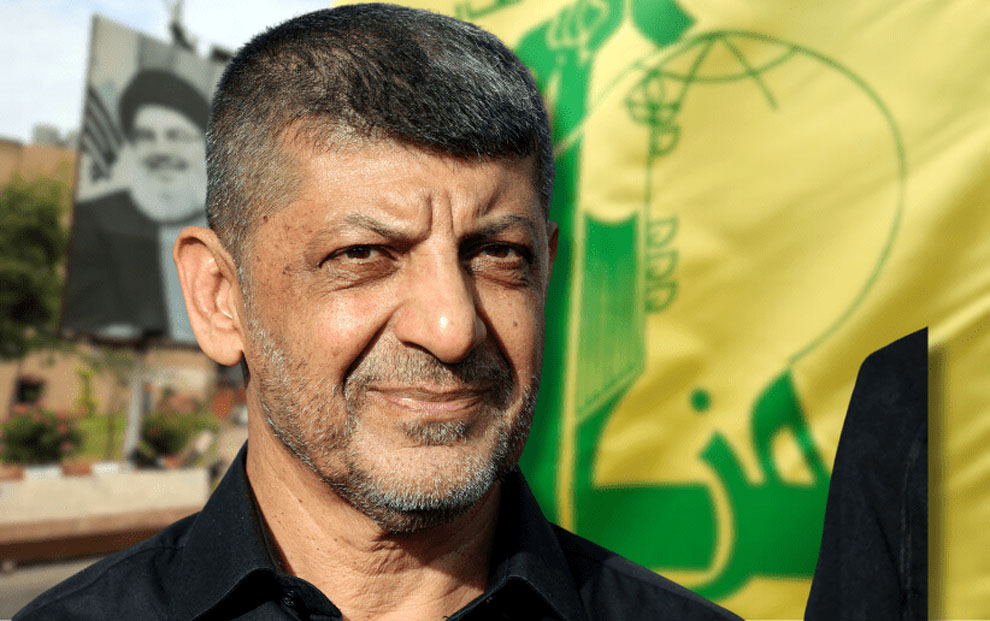
Hezbollah media head killed in Israel strike on Beirut
BEIRUT: An Israeli strike on a building in central Beirut on Sunday killed Hezbollah’s media relations chief, Mohammad Afif.
It was later announced that Mahmoud Al-Sharqawi, who was assisting Afif, was also killed at the headquarters of the Arab Socialist Ba’ath Party in Ras Al-Nabaa, a neighborhood of Beirut.
This is the first time this area has been attacked since Israel began operations in the country.
It is densely populated with residents and displaced people from the south, and Beirut’s southern suburbs who have taken refuge there.
The strike also wounded three others, the Health Ministry said in a preliminary count.
Paramedics at the scene of the attack told Arab News about “seeing more blood under the rubble, which is being cleared to determine the fate of those who were inside the building.”
The targeted center has belonged to the Ba’ath Party for decades.
Its Secretary-General Ali Hijazi said he was not in the building at the time of the airstrike, and did not explain why Afif was holding a meeting in the Ba’ath Party building.
Information circulated at the site of the attack that a group from Hezbollah’s media relations department was in the building when it was targeted, raising fears that three people accompanying Afif and who are missing might also have been killed.
READ ALSO:
- Ondo gov: Go to court, Tinubu tells aggrieved PDP, others
- After high charge, Band A customers lament decline in electricity supply
- Court stops police from arresting 68 Obaseki’s allies
On Oct. 22 and Nov. 11, Afif held two press conferences in the open air in the southern suburb of Beirut to present Hezbollah’s positions on developments under the watchful eye of Israeli reconnaissance planes, which are constantly flying over the southern suburb.
Afif was a founding member of Hezbollah, joining the party in 1983, and has been in charge of its media since 2014.
He managed Hezbollah-affiliated media outlets such as Al-Manar TV, Al-Nour radio station, and Al-Ahed news website.
Several residents of the targeted area said they received calls warning them to evacuate their homes immediately beforehand.
A 50-year-old woman said: “I just left the house without taking anything with me. It is a real terror.”
The airstrike, which is suspected to have been launched by a drone, destroyed the upper floors of the five-story building, and damaged neighboring buildings on the narrow street.
Israeli army radio confirmed Mohammed Afif was the target of the strike.
It is the third time Beirut has been targeted since the Israeli military expanded its operations in Lebanon.
On Oct. 10, three airstrikes were directed at Wafiq Safa, the head of the liaison and coordination unit of Hezbollah, severely injuring him, as well as the destruction of two buildings in the neighborhoods of Basta and Nuwairi.
A week before, a Hezbollah ambulance center in Bachoura was attacked, leading to the deaths of six people and injuries to seven others.
On Sunday, residents of the Ain Al-Rummaneh area adjacent to the Chiyah district received evacuation warnings issued by Israeli army spokesperson Avichay Adraee via X, accompanied by maps indicating locations to be targeted on the outskirts of Ain Al-Rummaneh, Haret Hreik, and Hadath.
Israeli warplanes subsequently demolished tall residential and commercial buildings in the area.
READ ALSO:
- 26 dead, 59 missing as Israel hits Gaza, Lebanon in deadly strikes
- Court stops NBC from imposing fines on broadcast stations
- Agbede urges Baruwa to congratulate MC Oluomo, in spirit of sportsmanship
Our Lady of Salvation Church in Hadath was severely damaged, as were the surroundings of Mar Mikhael Church.
This was followed by a second wave of raids on residential buildings in Burj Al-Barajneh and Bir Al-Abed, and a third wave targeted more than one location in Haret Hreik and Sfeir.
The Israeli spokesperson claimed that the airstrikes “targeted military command centers and other terrorist infrastructures belonging to Hezbollah in the southern suburbs.”
The claim came as Israeli attacks targeting southern Lebanon continued.
The residents of 15 towns deep in the south were asked to evacuate their houses immediately and move north of the Awali River.
The Lebanese military said an Israeli attack on Sunday killed two soldiers, accusing Israel of directly targeting their position in southern Lebanon.
“The Israeli enemy directly targeted an army center” in Al-Mari in the Hasbaya area, causing “the death of one of the soldiers and the wounding of three others, one of whom is in critical condition,” the army said in a statement.
A separate statement shortly afterward said “a second soldier” had died of his wounds.
The Lebanese Army has lost 36 soldiers to Israeli attacks in southern Lebanon over the past year.
Prime Minister Najib Mikati paid tribute to the “martyrs of the army who gave their lives.”
He said: “We must all cooperate so their sacrifices do not go in vain by working first to stop the Israeli aggression on Lebanon and enable the army to carry out all the tasks required of it, to extend the authority of the state alone over all Lebanese territories.”
Mikati said he was hopeful that the ongoing talks would result in a ceasefire.
Also on Sunday, Israeli strikes targeted a house in Chabriha, Sidon District, causing injuries, with raids hitting Tefahta and Aanquoun as well.
In another incident, a person was killed and three injured at dawn in an air raid on the town of Jdeidet Marjayoun.
On Saturday night, a family of seven, including three children, were killed when their house in Arabsalim was targeted.
The displaced Al-Hattab family had moved to the north but was not able to adapt to the conditions of displacement and decided to go back to their home in Arabsalim days before it was hit.
Hezbollah said its confrontations with the Israeli army continued at the borders, especially in Shama.
Hezbollah media head killed in Israel strike on Beirut
ARAB NEWS
-

 metro2 days ago
metro2 days agoSouth-West NURTW: Why we chose Oluomo over Baruwa
-

 News22 hours ago
News22 hours ago[UPDATED] [Breaking] APC’s Lucky Aiyedatiwa wins Ondo governorship election
-
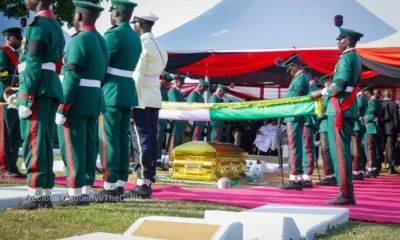
 News3 days ago
News3 days agoLate COAS Lagbaja gets CFR honour, buried amid tributes
-

 metro20 hours ago
metro20 hours agoNURTW: Agbede urges Baruwa to congratulate MC Oluomo, in spirit of sportsmanship
-

 Sports2 days ago
Sports2 days agoHow much is Mike Tyson, Jake Paul getting paid for the fight?
-
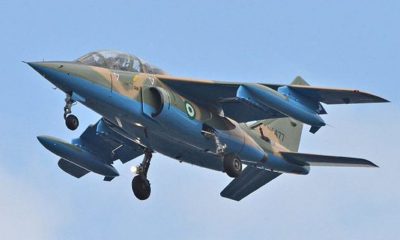
 metro2 days ago
metro2 days agoNAF air strikes kill scores of bandits in Kaduna, free kidnap victims
-
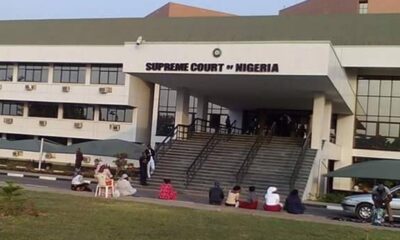
 metro1 day ago
metro1 day agoSupreme Court sacks Remo monarch in Ogun State
-

 metro2 days ago
metro2 days agoAppeal court affirms Baruwa as NURTW president, renders MC Oluomo election invalid




